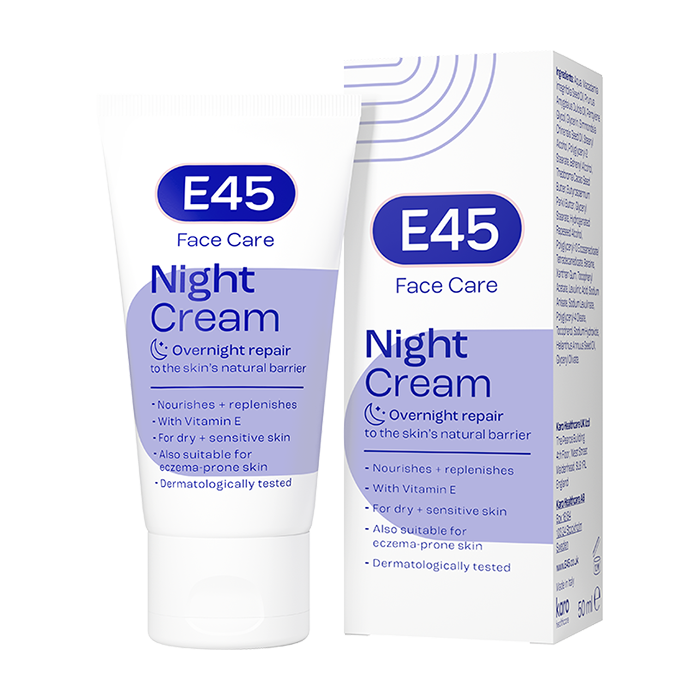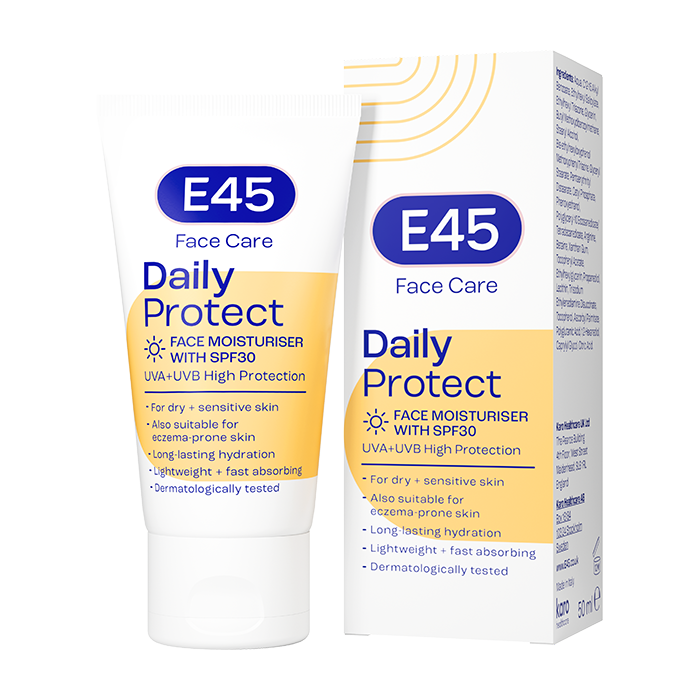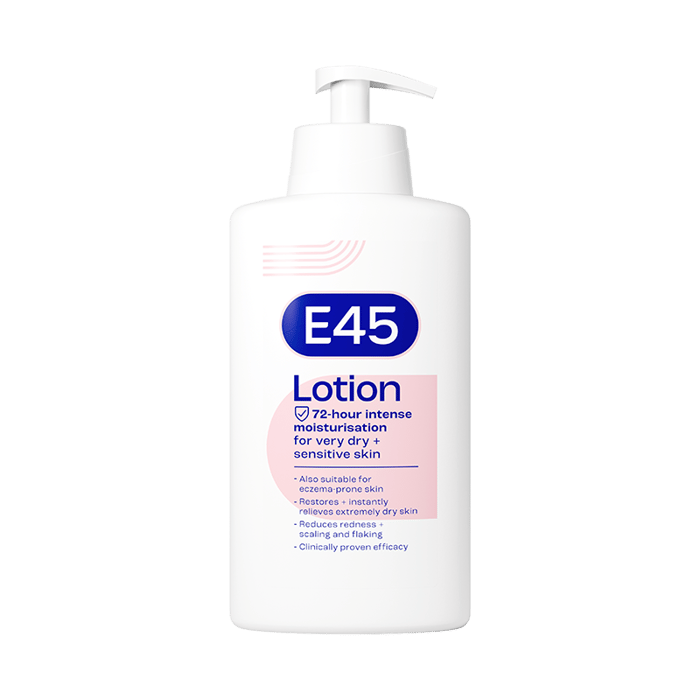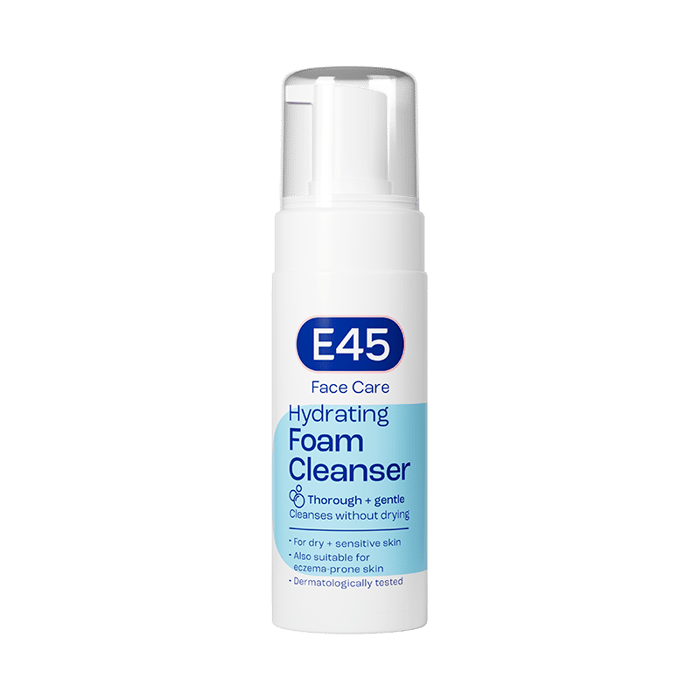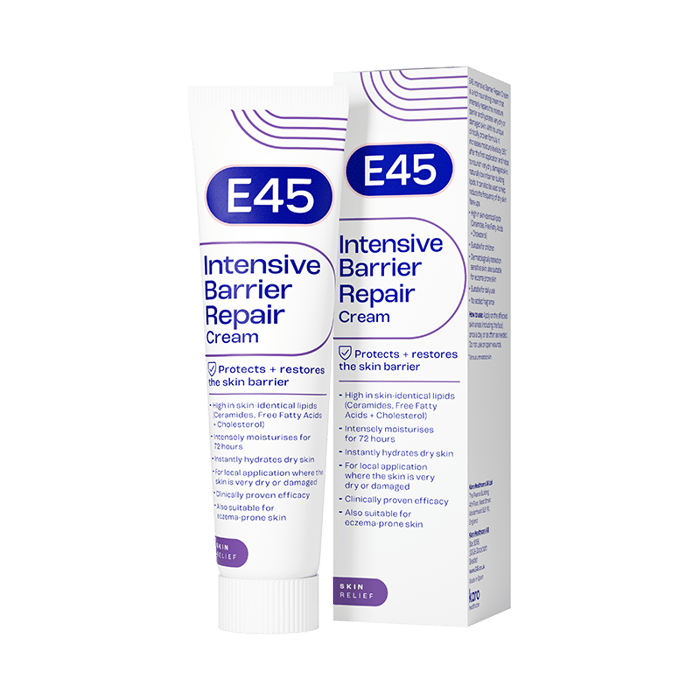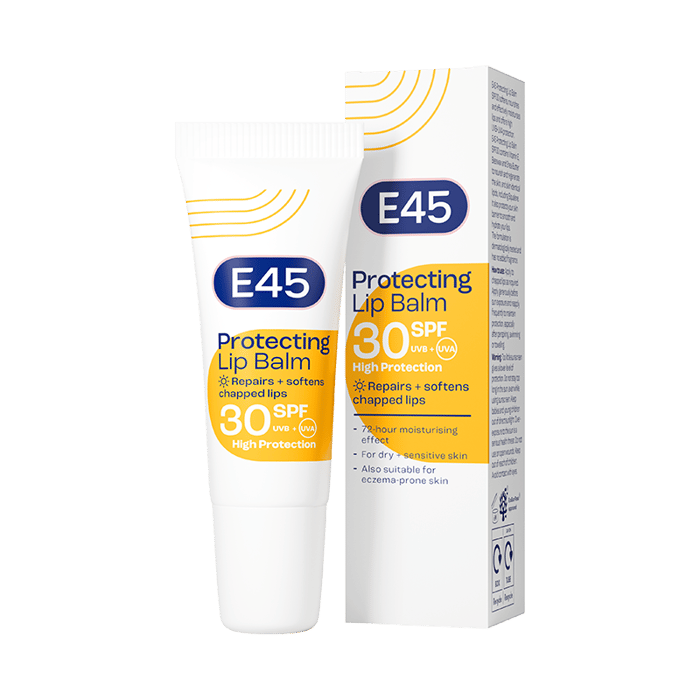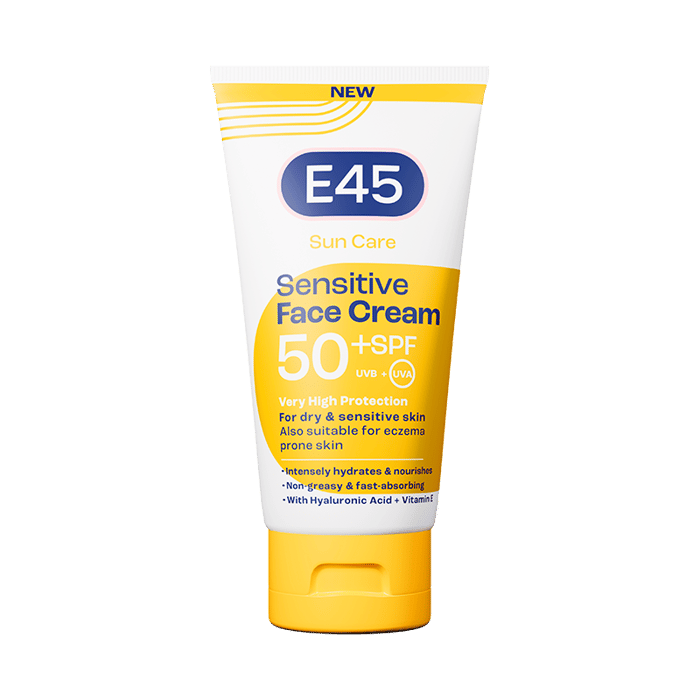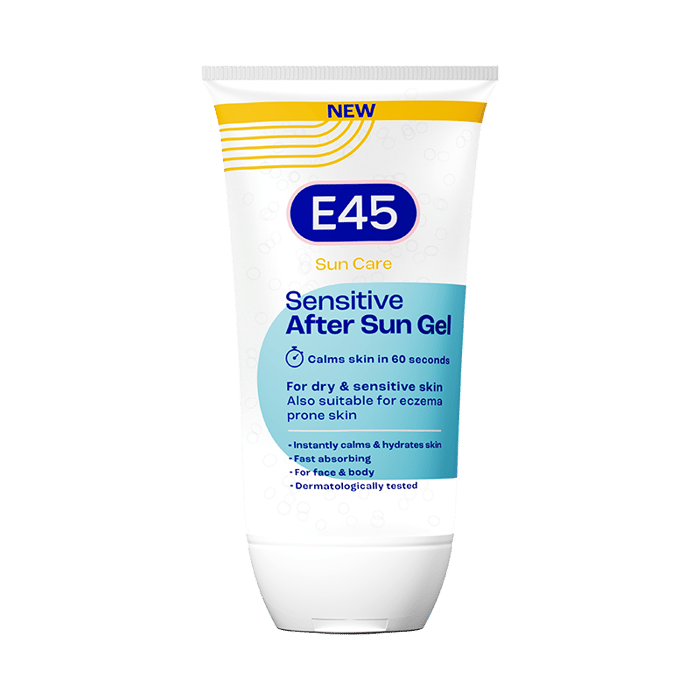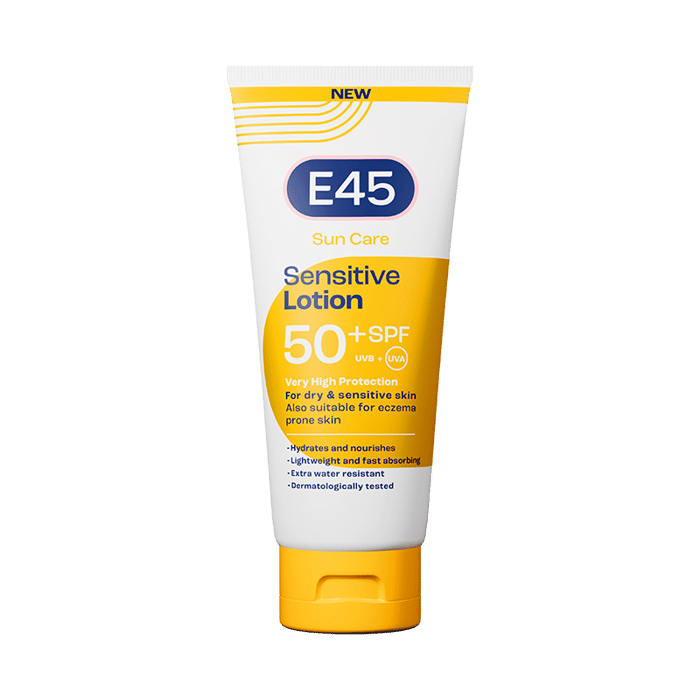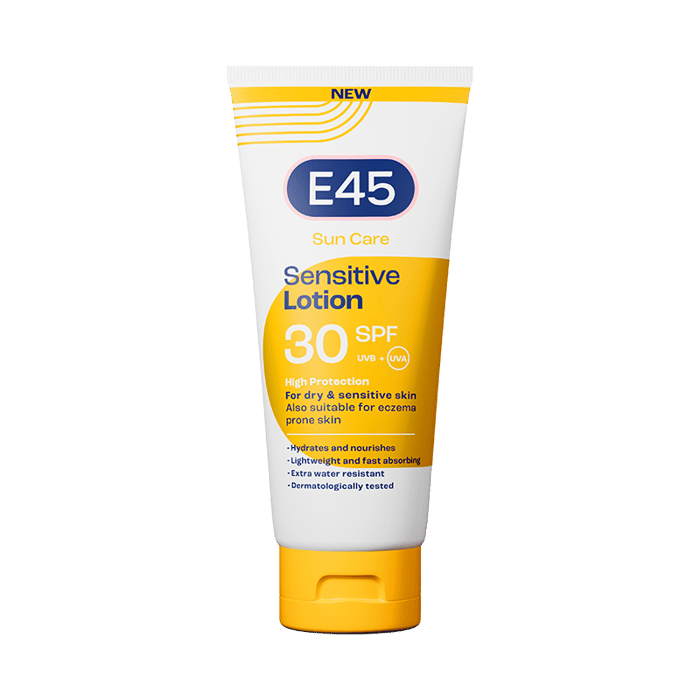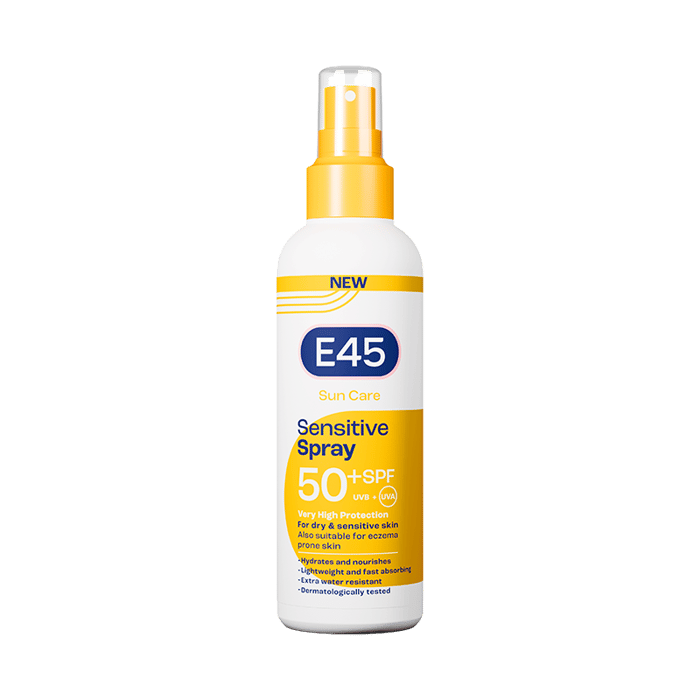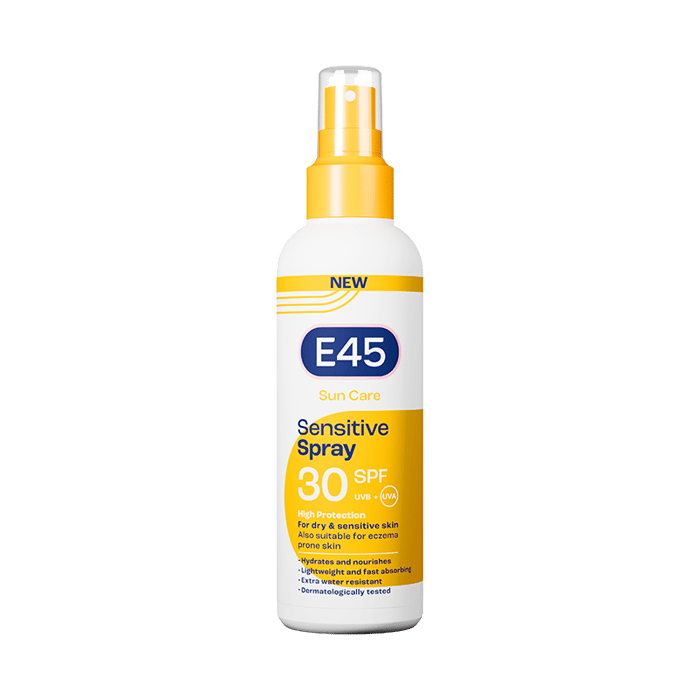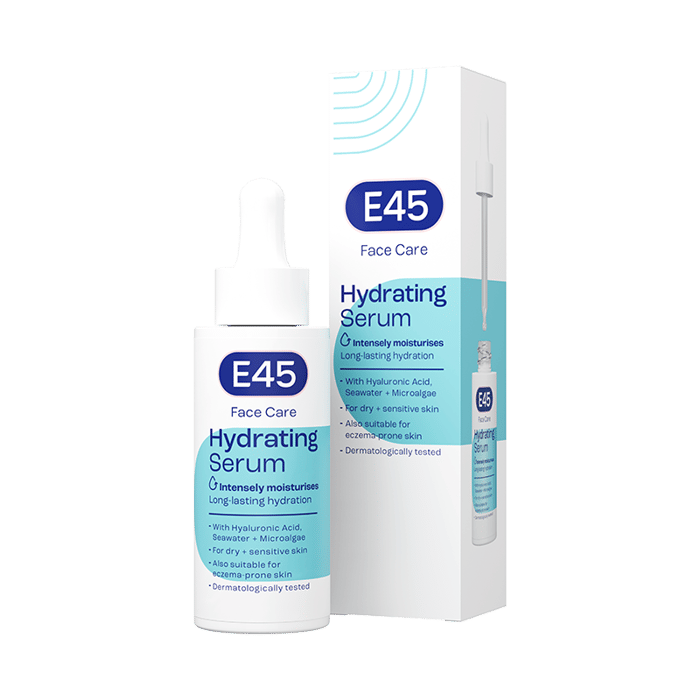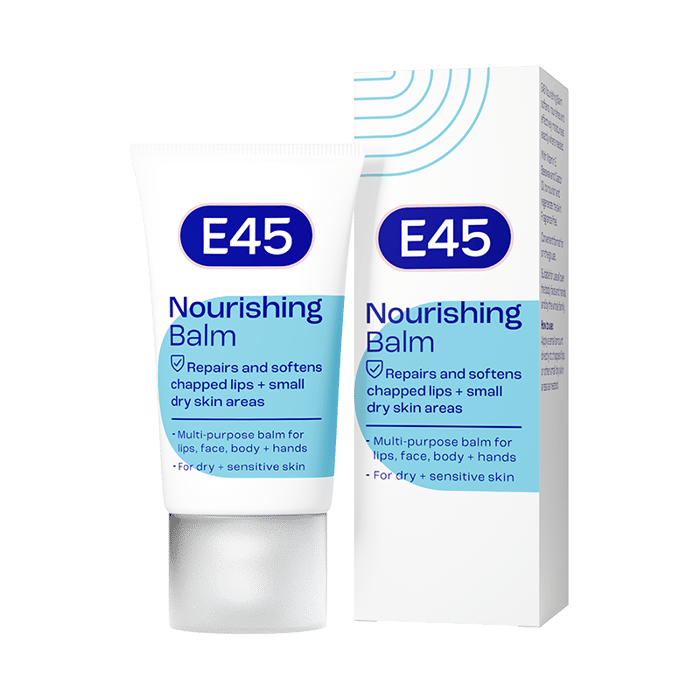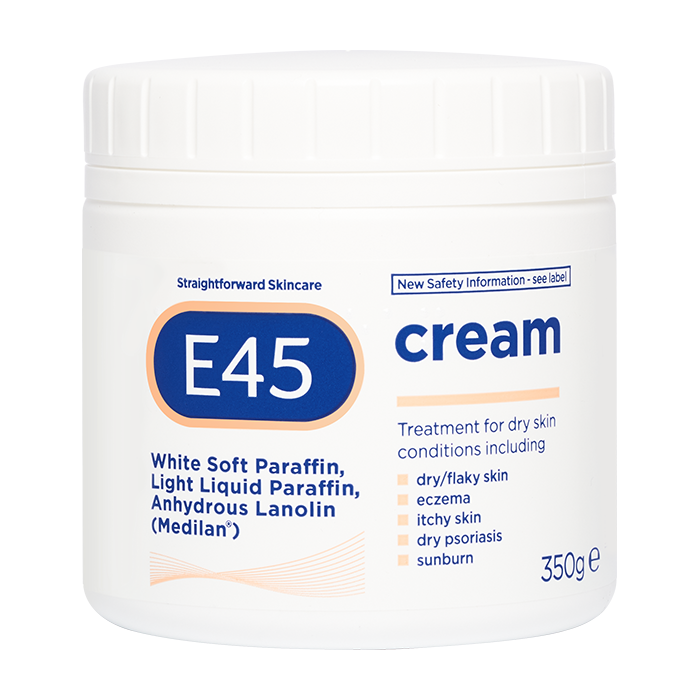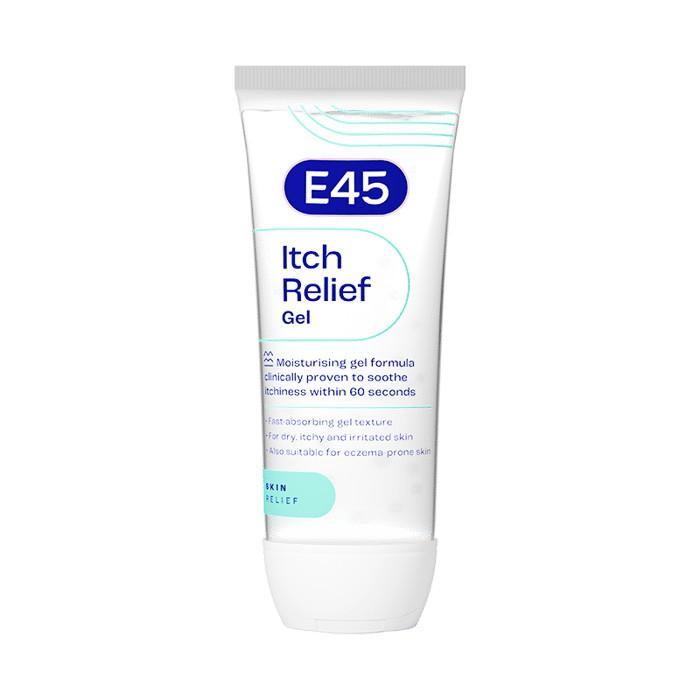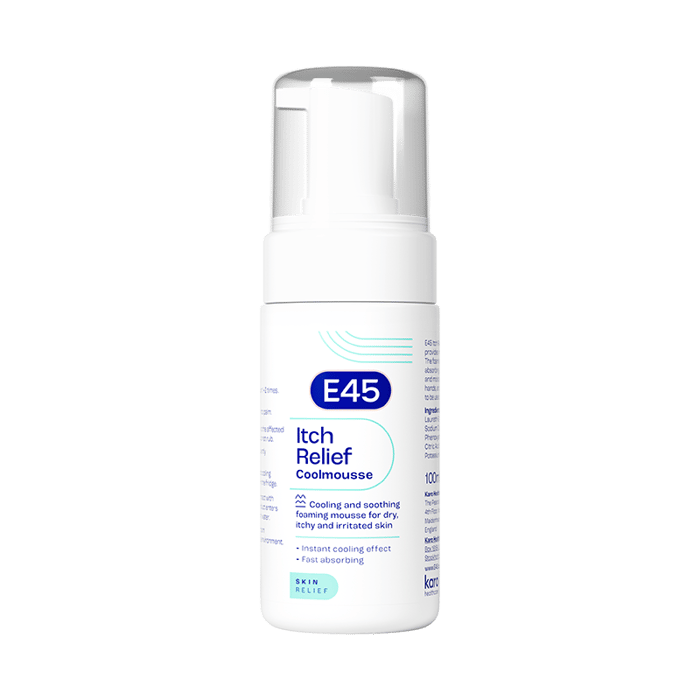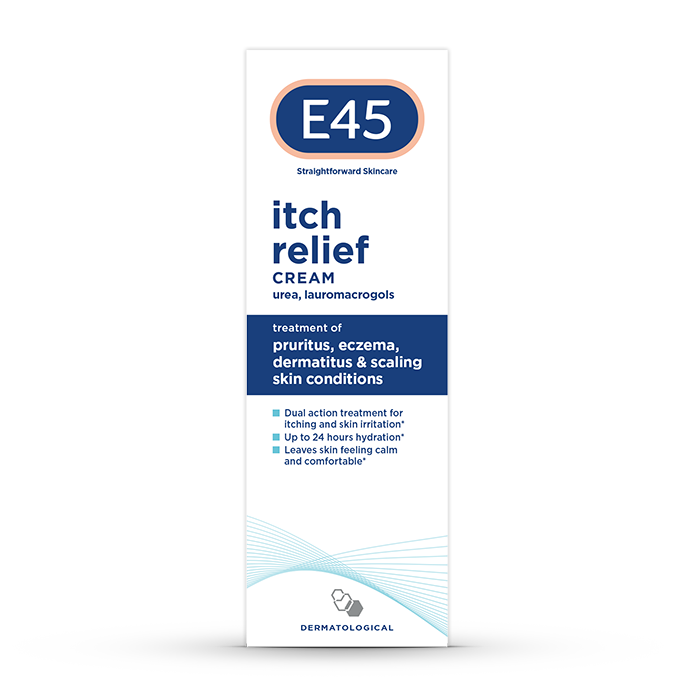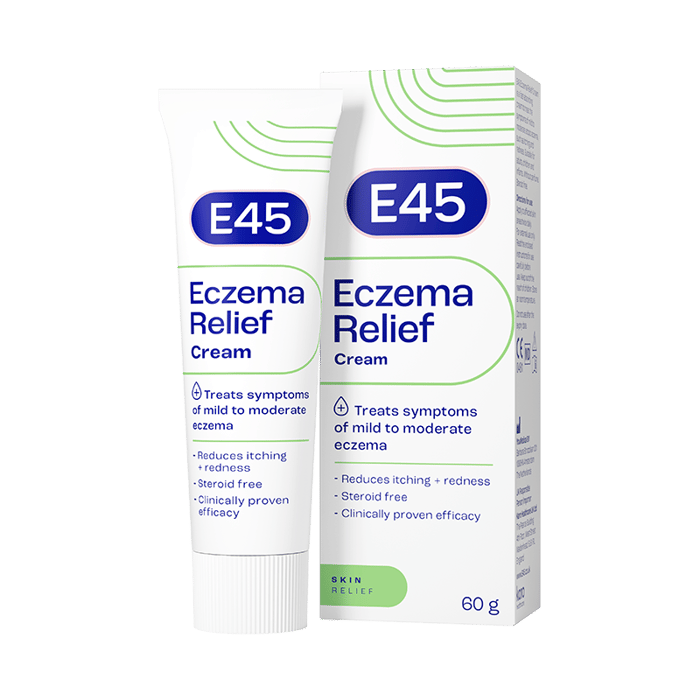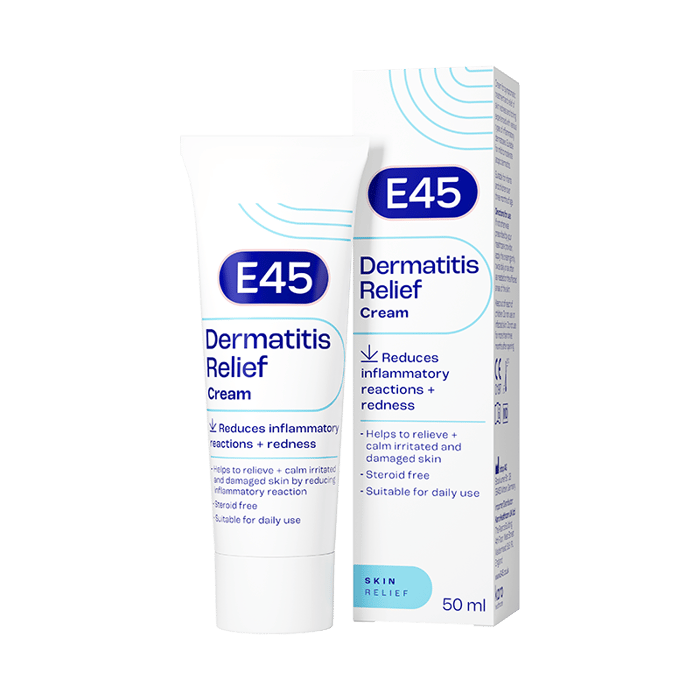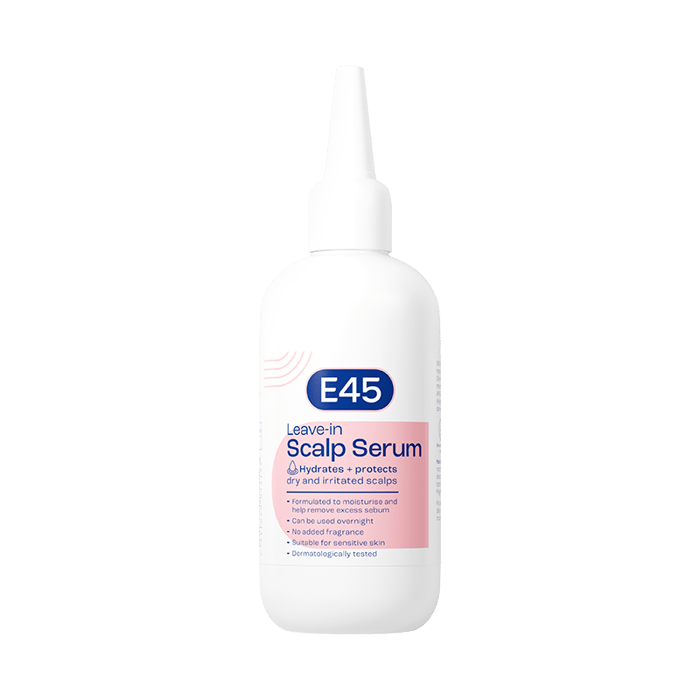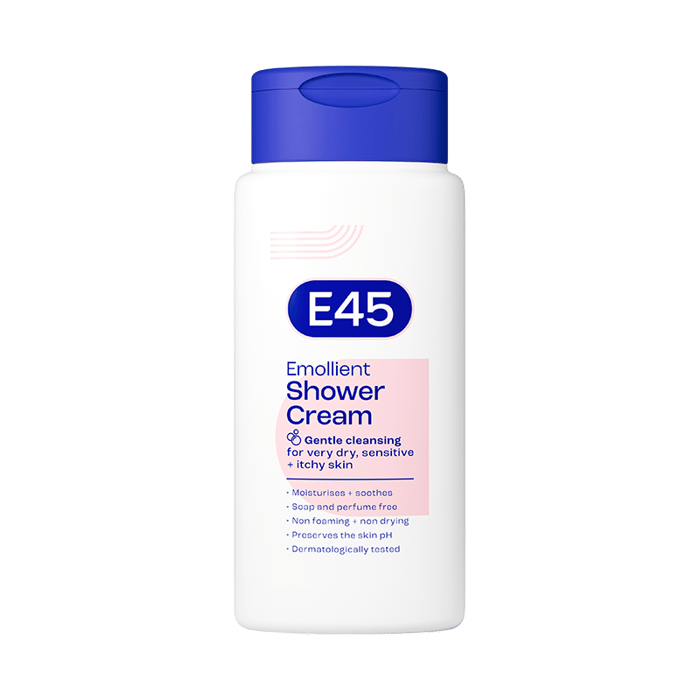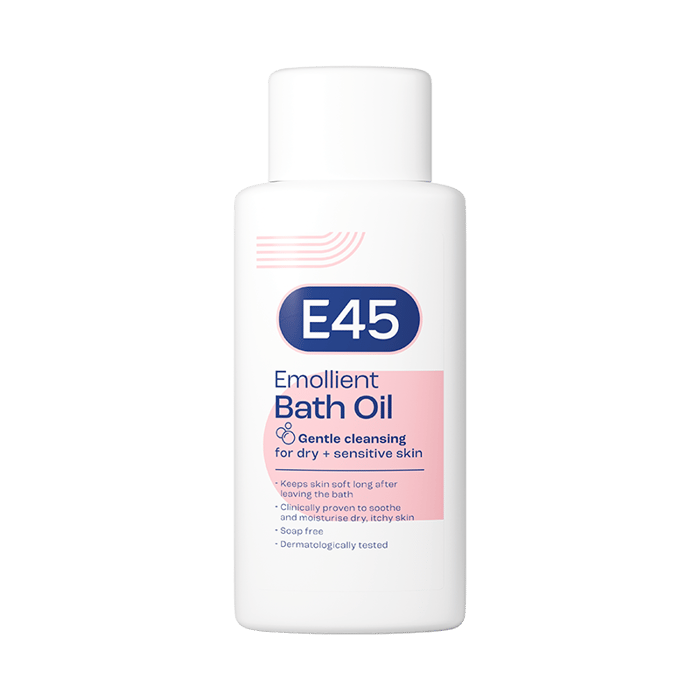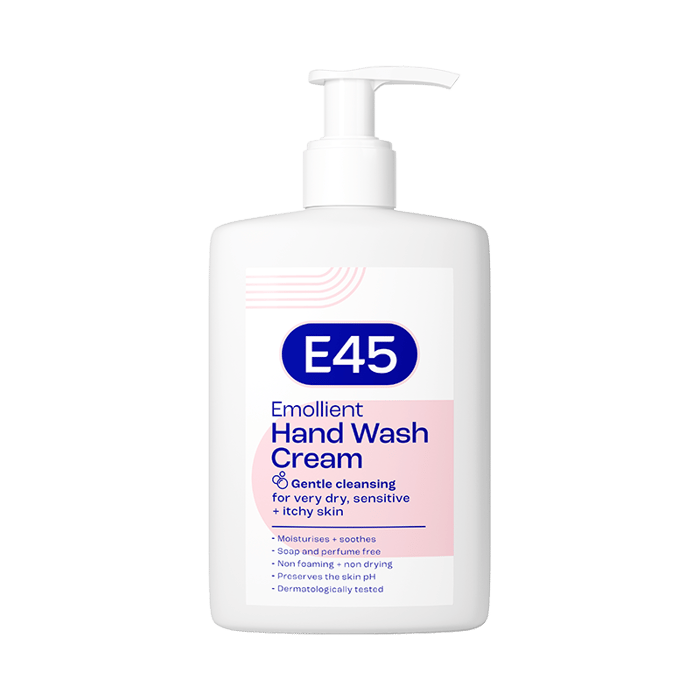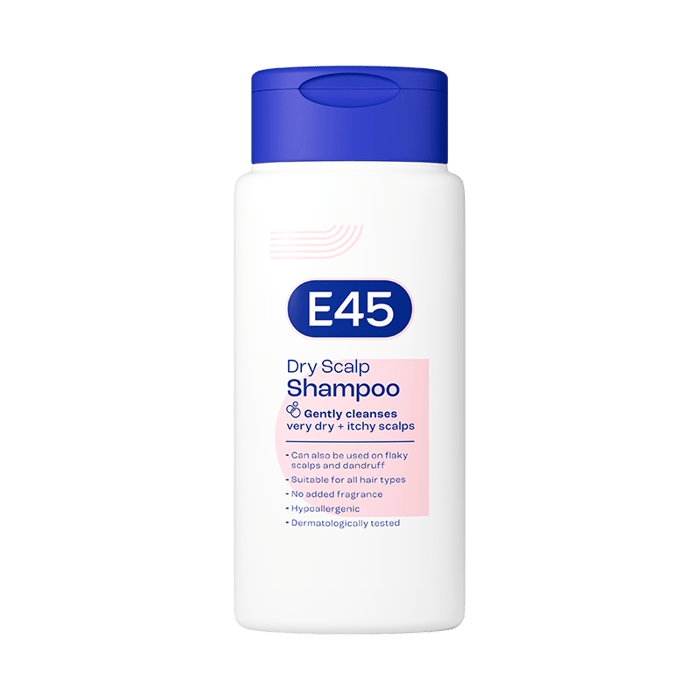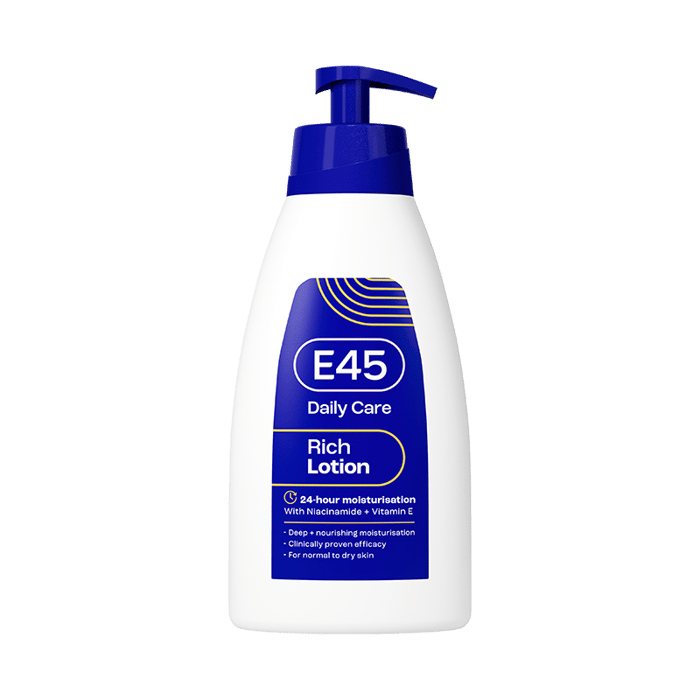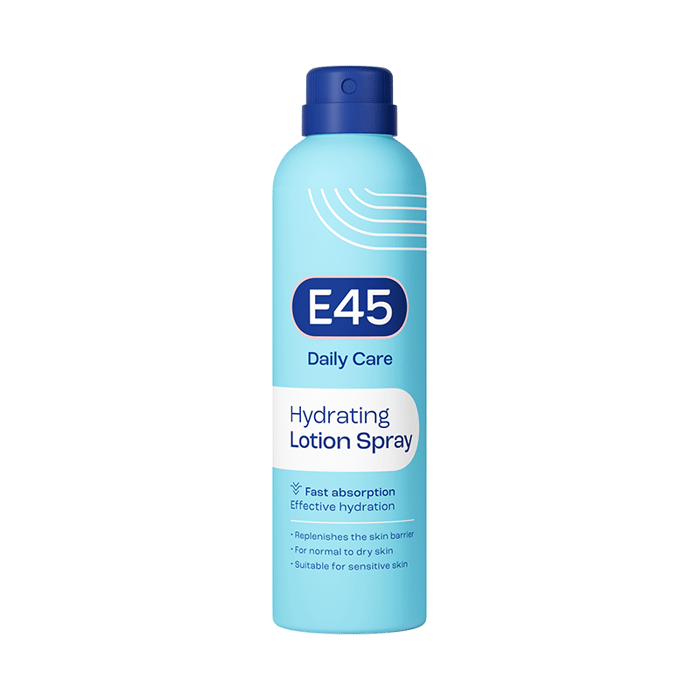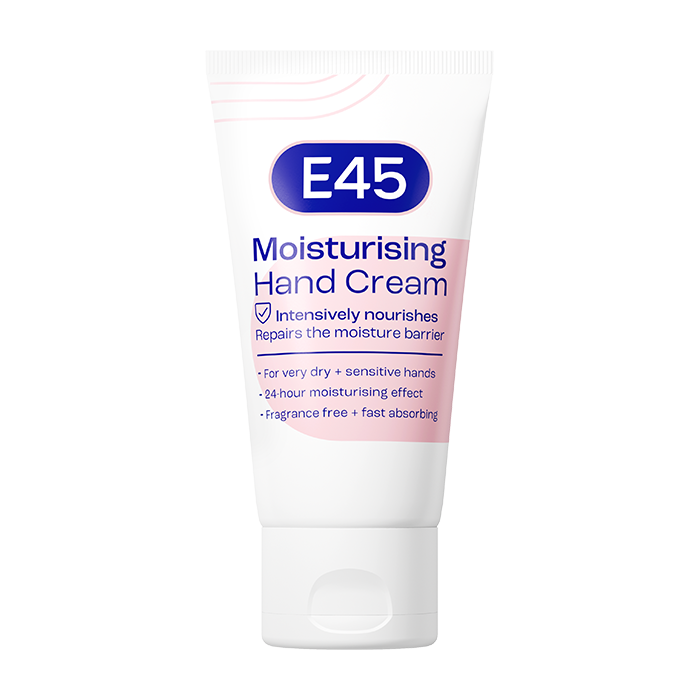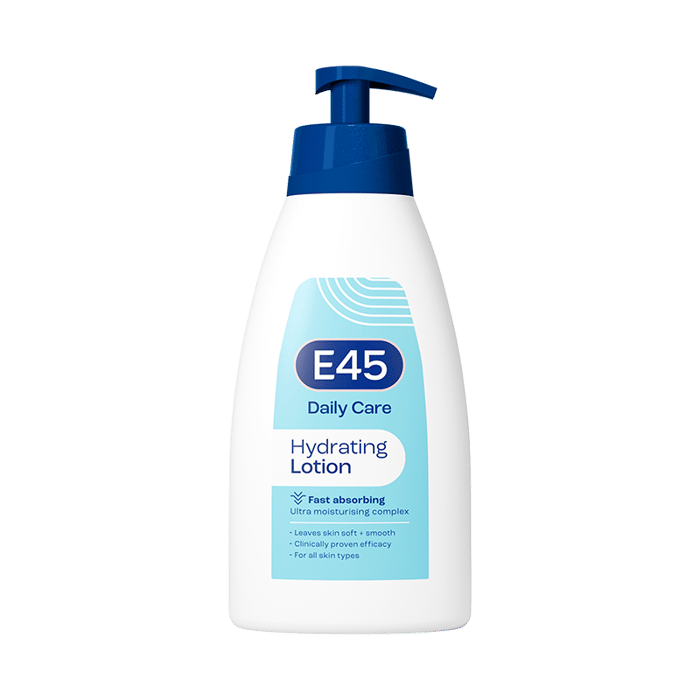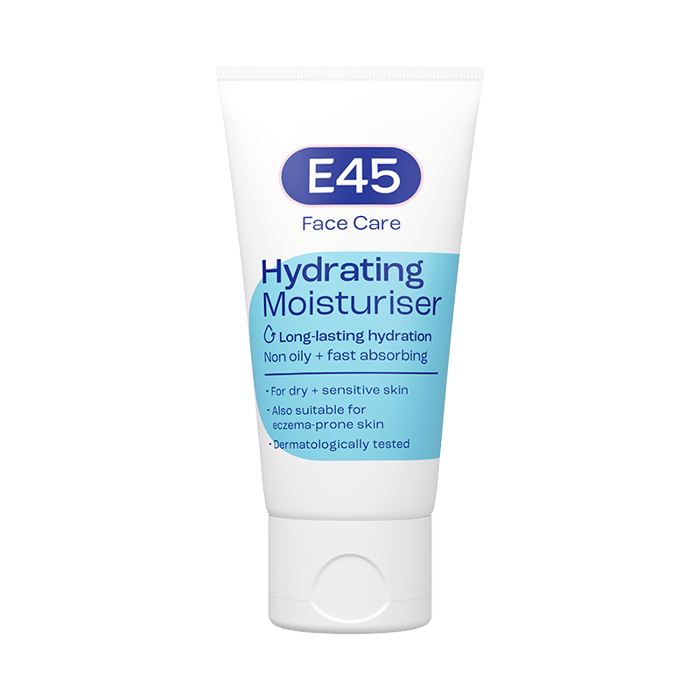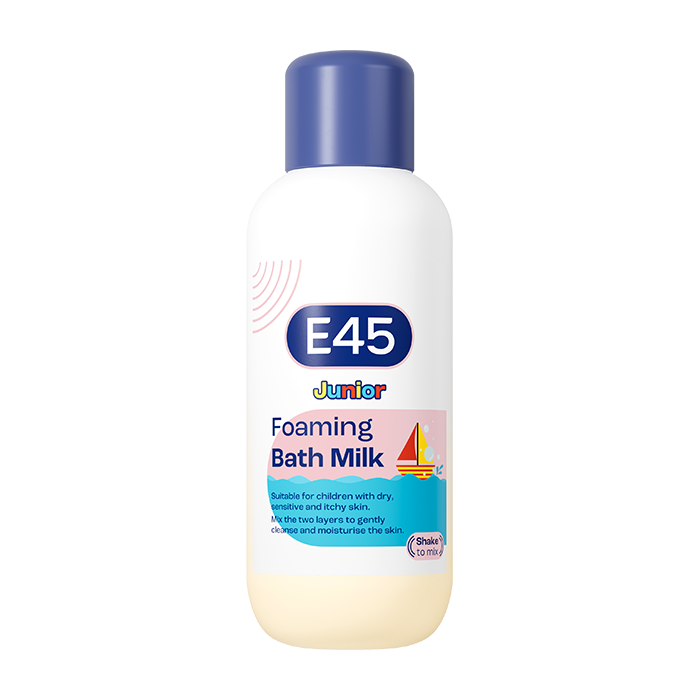Dry Skin
Is your skin red, uneven, tight or flaky? These are all signs of dry skin. When your skin becomes dry, it means it’s lacking in moisture — a common issue that most people can manage themselves. In this article, we’ll share our top tips for treating dry skin and explore the most common causes behind it. With the right care, you can not only soothe your skin but also prevent dryness from coming back as often.
What is dry skin?
Dry skin occurs when the skin barrier is damaged and lacks natural moisturising substances, which can lead to a variety of uncomfortable symptoms. It can affect large areas of the body or appear as dry patches on your skin. In some cases, it’s localised to the face — such as around the eyes or mouth. Dry skin doesn’t discriminate by age and can affect babies, children, and adults alike. Most people experience dry skin at some point in their lives, and it’s usually a temporary condition that can be treated at home. Fortunately, with proper hydration and a few preventive steps, it’s often easy to manage.

Other common dry skin conditions
Most cases of dry skin can be managed with regular moisturising, but sometimes it may be a sign of an underlying skin condition. Here are some other common dry skin conditions.
- Eczema – One of the most common is atopic eczema — a long-term inflammatory skin issue that often appears on the face, scalp, hands, and in body creases such as the knees, elbows, and underarms.
- Contact dermatitis – This occurs when your skin reacts to an allergen, triggering inflammation or irritation.
- Psoriasis – A skin condition that typically develops between the ages of 10 and 35, and is sometimes linked to other health conditions such as diabetes, heart disease, Crohn’s disease, obesity, anxiety, and depression.
- Ichthyosis – This refers to a group of conditions, with ichthyosis vulgaris being the most common form in infants, and acquired ichthyosis affecting adults. Alongside dry skin, it can cause the skin on the palms and soles to crack, particularly in the creases.
Symptoms of dry skin
When your skin is lacking moisture, it can show in a number of ways. Symptoms vary depending on age, health, skin tone, your surroundings, and sun exposure. Here are some of the most common signs of dry skin:
When to see a doctor
In most cases, dry skin can be treated at home with lifestyle changes and simple remedies. However, if these don’t help and your dry skin starts affecting your daily life, it may be a sign of an underlying skin condition such as eczema or psoriasis (Source). Speak to your GP or a dermatologist if you experience any of the following:
- Your skin remains uncomfortable despite regular moisturising
- Your skin starts to crack, bleed or feel sore
- You have a constant itching
- A rash develops on your skin
What causes dry skin?
Dry skin can have many different causes — often related to environmental conditions or your everyday habits. In other cases, it may be due to natural changes in the skin or other health factors. Here are some of the most common causes for dry skin across the body:
Everyday environmental factors
- Cold, dry weather
- Central heating or air conditioning
- Windy weather
Daily habits that might contribute
- Long, hot showers or baths
- Washing too frequently or with harsh soaps
- Not moisturising after bathing
- Jobs that require frequent hand washing, outdoor work, or contact with chemicals
Age and natural skin changes
- As we age, our skin tends to produce less oil, which can make it drier over time.
Health and genetic factors
- Your genes also play a role in determining your skin type and can make you more prone to dryness.
- Certain medical conditions such as allergies, eczema, diabetes, and kidney disease can cause dry skin as a symptom (Source).
How to treat dry skin effectively
A good skincare routine is key to treating dry skin. Using fragrance-free products with effective ingredients helps the skin stay hydrated and supports the repair of its natural moisture barrier. Here are some tips to help you restore your skin’s hydration:
Choose a gentle facial cleanser
Cleanse your face with a mild, hydrating product designed for dry skin, such as E45 Face Foaming Cleanser. The right cleanser will deeply clean your skin without stripping it of moisture, leaving it soft and smooth.
Hydrate morning and night
If you have dry skin on your face, make sure to apply both a day cream and a night cream. At night, E45 Face Night Cream is ideal for deeply moisturising and repairing dry skin. In the morning, E45 Face Daily Protect provides hydration while also shielding your skin from sun exposure.
Take care of your body
If dry skin affects your body, use a moisturising body lotion like E45 Lotion, which is clinically proven to reduce dry and flaky skin. Apply daily to keep your skin soft, smooth, and well-hydrated.
Targeted treatment for dry spots
For particularly dry areas, you may need an extra boost of moisture. E45 CICA Sooth & Repair Cream, suitable for both face and body, is a multifunctional cream with over 90% naturally derived ingredients. It helps protect, repair, and nourish damaged skin. You can start calming dry and irritated areas within 30 minutes, with reduced redness within three days.
Support from within
Hydration starts from the inside. Drink plenty of water throughout the day and try to avoid alcohol, caffeine, sugar, and salt, as these can all contribute to skin dryness. (Source)
Preventing dry skin long-term
Emollients
To reduce the chances of dry skin recurring, a few lifestyle adjustments can make a big difference. Here are some tried-and-true tips to help maintain your skin’s moisture balance:
- Use fragrance-free and gentle products
- Moisturising straight after bathing while the skin is still damp
- Wearing gloves when doing household cleaning or dishes
- Keep showers short and warm, but not hot
- Moisturise twice daily or as often as needed
- Use a humidifier if the air in your home is dry
- Wear layers to protect your skin from cold and wind
Conclusion
Dry skin is a common concern that can affect anyone, regardless of age or skin type. While it’s often harmless, it can be uncomfortable and sometimes persistent without the right care. Fortunately, with a consistent skincare routine, the right products, and a few simple lifestyle changes, most cases of dry skin can be managed effectively at home.
Whether your skin is occasionally dry during colder months or you’re dealing with it year-round, understanding the causes and knowing how to treat and prevent dryness is the key to keeping your skin healthy, hydrated, and comfortable.
Taking care of your skin doesn’t need to be complicated — just consistent.
Dry Skin FAQs
Why is my skin so dry and flaky all of a sudden?
Sudden dryness and flakiness can be caused by a number of factors, including cold weather, low humidity, hot showers, or changes in your skincare routine. It may also be a reaction to certain soaps, detergents, or skincare products.
How do you treat dry skin?
It can help to moisturise regularly, especially after washing, and to avoid long, hot showers. Using gentle, fragrance-free products is also key.
How can I remove my dry skin?
A gentle exfoliating cloth or cream may help loosen flakes, but it’s important to follow up with a good moisturiser to keep skin soft and hydrated.
What are the main causes of dry skin?
Dry skin is often caused by cold weather, central heating, hot water, or using harsh soaps. Age and not moisturising often enough can also play a part.
How to stop skin itching?
Moisturising frequently can soothe dry, itchy skin. Try to avoid scratching and use emollients designed to calm irritation. If it continues, it’s a good idea to speak with a healthcare professional.
Why is my skin so dry?
It might be due to weather, indoor heating, bathing habits, or the products you use. Skin can also become drier as we get older.
Is baby oil good for dry skin?
Baby oil can help lock in moisture, especially if applied to damp skin. However, some people prefer creams or ointments for more lasting hydration.
Can stress cause dry skin?
Yes, stress can sometimes affect the skin, including how well it holds moisture. You might notice your skin feels drier or more sensitive during stressful times.

